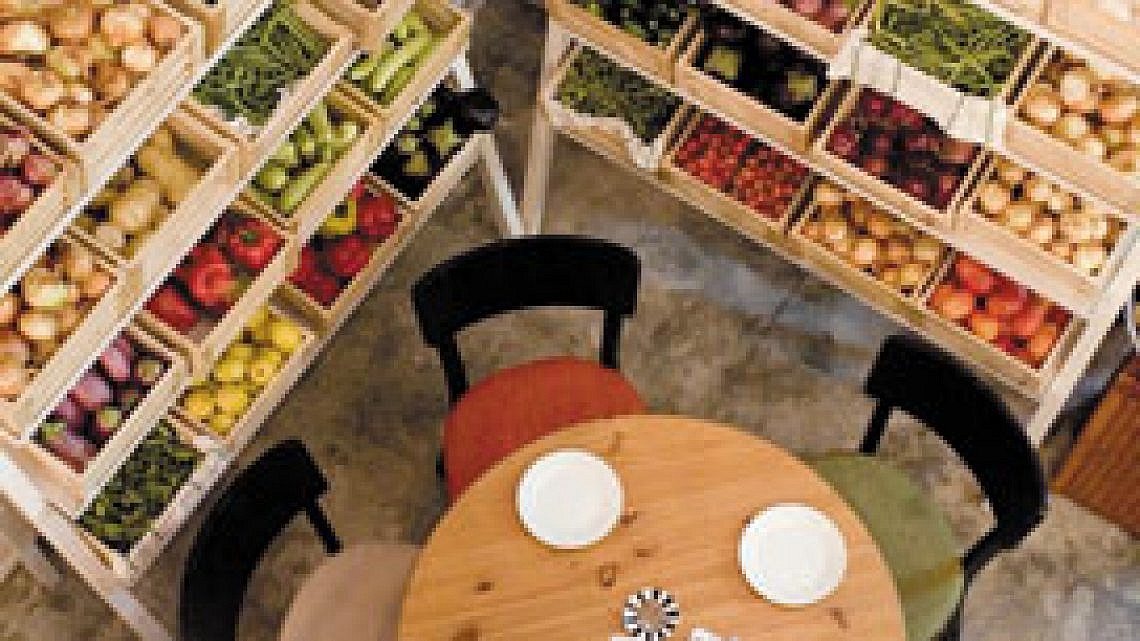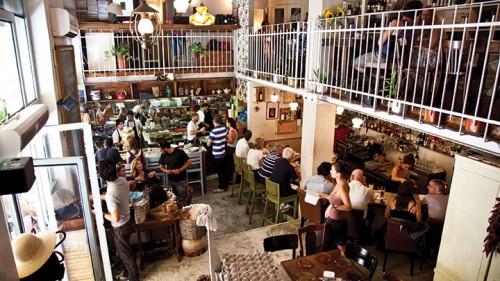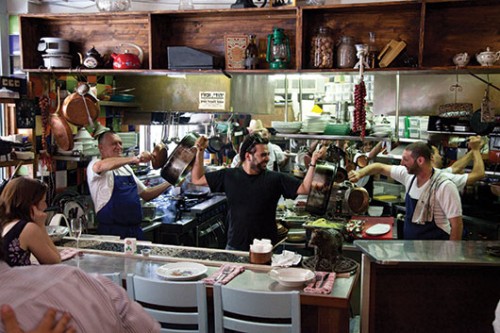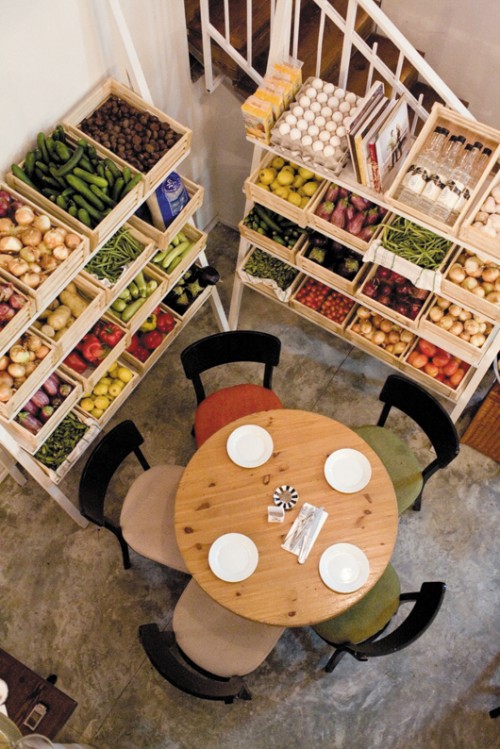Catch of the Day
Home-cooked hospitality is exactly the ethos behind Jerusalem’s famed Machnyehuda restaurant. Gil Karpas talks to one of the visionaries in the kitchen

Jerusalem has a diversity of peoples and cultures to rival the large metropolises of the world and with that comes a colliding cornucopia of culinary cultures. In the very heart of this city is the Machane Yehuda Market. Established in the 1800’s it was originally founded to be a place for the Jewish community of West Jerusalem to trade food and wares.
Over the past two centuries it has developed into a bustling heart of the city and a destination of cultural pilgrimage the world over. In the heart of the market is a restaurant of the same name, ‘Machneyuda,’ which is the realized dream of culinary wizard Yossi Elad aka “Papi”.

What was the ethos behind Machanyehuda?
“When we first met, the three partners—Assaf, Uri and I—Assaf and Uri approached me and asked me if I wanted to join them. I asked them in return why they wanted to open a restaurant because there are some very good chefs in Israel, so what will be our unique thing? They said, we’ll open a restaurant in the market and get the freshest products, we’re not going to have any stores or fridges or anything like that, we’re going to go the market buy the ingredients and make our food out of it. Through the years, we have changed a bit but we are still working with fresh, fresh products.”
The service also has a reputation to compliment the food?
“We host our customers as if they are coming home. Our first thing before even cooking food or approaching a product is that we love people. That is our guideline, we want people to enjoy the things we are doing. We think we are making good food and if it comes from love for the people that you want to come to you, that makes a complete difference. It is all about hospitality. When I enter the kitchen all I think about is the food I’m preparing for the people who are coming to give me the honour of serving them the food.”

How do Jerusalem and the market influence and inspire you?
“I wasn’t born in Jerusalem but my partners were and they are coming from all kinds of backgrounds, Kurd, Iraqi and German and what people call “Kibbutz Galuyot”, so everyone is bringing their own influences from home and you can’t forget where you are coming from. The second thing is that we work differently than most, who go to a book and decide ‘I want make cured sardines’ and they copy the recipe. We do it differently, we go to the market, we see the sardines and we say ‘Ok, now I want to do the sardines stuffed!’ So I’ll buy some herbs, some onions and ill make some stuffed sardines. I get inspired, not by the book but by the things I see in the market. Lovely tomatoes? Lets make a tomato salad. The new Horseradish? Ok how can we use it. Its a very direct process, I dont need a recipe, I see the product, I see the vegetable, I feel the taste even before I start cooking and then I aim for the taste I tasted when I first saw the produce. We work the other way round, its completely different.”
Such a philosophy is akin to an artist. They visualise the art and then they set out to make it. What dishes define this philosophy?
“Because we are a restaurant and people are coming, they expect the same dish and you write it down and teach the cooks to do it this way. This is my way of experiencing sardines, beetroot, whatever in the way I first saw it and tasted it, because when you come to the restaurant for a steak you want to come back and have the steak the same way. In the end we have to bring it down to earth and explain the philosophy behind it so that we can cook it for the customers.”
How important is the sourcing of ingredients?
“Beyond the market, we look for local farmers, we look for local fisherman, we work according to the seasons. What happens is there aren’t really any seasons anymore because you can get everything all year round. Although beetroot is better in summer, oranges are better in winter than in summer. So you use those ingredients according to the seasons but there aren’t really any seasons any more but we still aim. The best fish of a certain type is better at the beginning of the winter while other fish are better at the end of winter or the beginning of summer, so you change it on the menu accordingly.”

With your sixth restaurant in London, how has this other great culinary capital of the world taken to this ethos?
“The Palomar is the only restaurant out of Israel currently. We never expected it to be as good as it is. We knew after opening five restaurants that we were doing something right, but we didn’t expect such a response. Time Out London placed us at No 7 out of the top 100 restaurants in London.”
Is it all about food or there something that drives your passion for other people’s enjoyment?
“Yesterday, I heard a lecture by Yeshua Herschel on Youtube and the lecture was about not what is a man, but who is a man. You know a little Yiddish, be a ‘mensch’. That’s it, be real, be who you are, from the inside.”
Here is a man nicknamed "Papi” who, like a parent to a child, only wants to see people happy and well fed. Yossi and the team take it upon themselves to stay sincere and keep their food as good as their generous spirit.
10 Beit Yaakov St, Machane Yehuda Market, Jerusalem
02-5333442, see: MachneYuda

